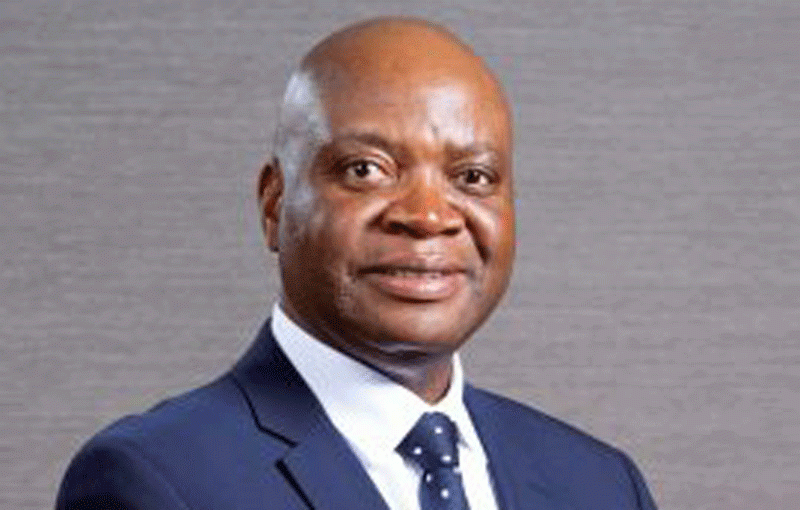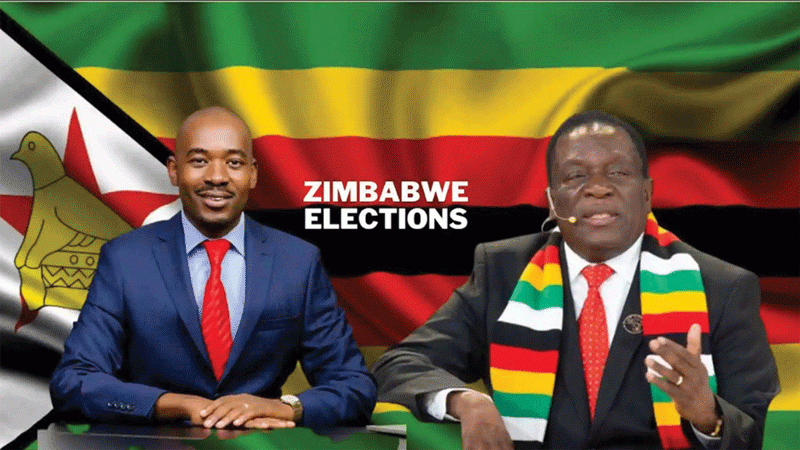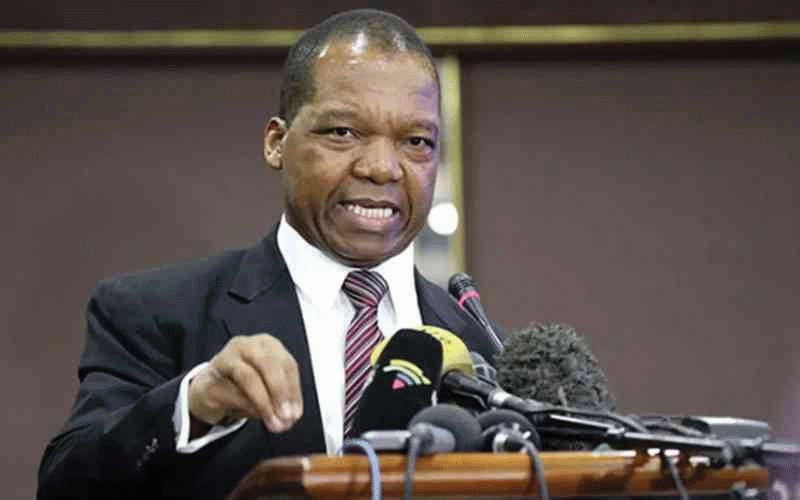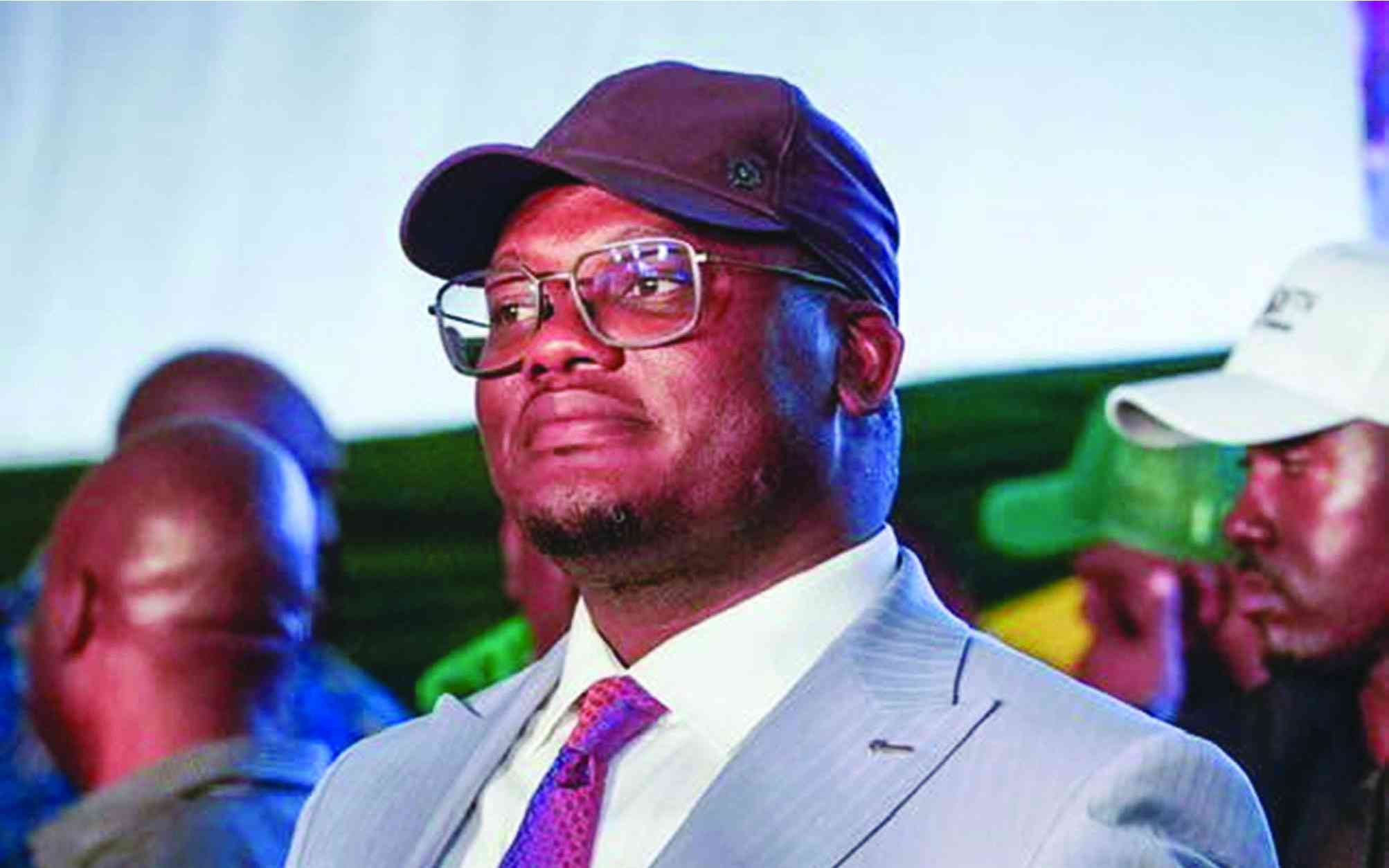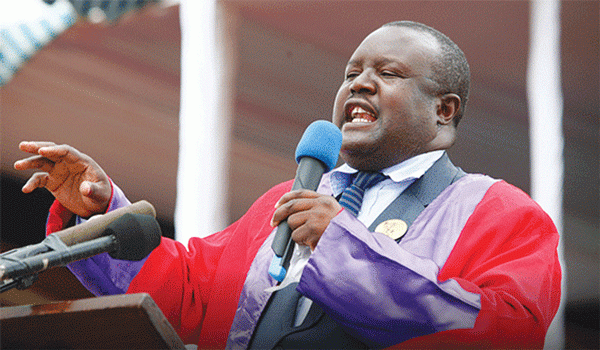
IN the past two weeks, sensational allegations of sexual misconduct have been levelled against chief Fortune Charumbira, one of Zimbabwe’s most respected traditional leaders.
In a rare move against a traditional leader, a 27-year-old Masvingo woman claimed Charumbira wanted to sleep with her, but the long period that it has taken for authorities to act is already beginning to raise eyebrows.
An important point to note is that Charumbira is not only president of the Zimbabwe Chief’s Council but is also president of the Pan-African Parliament, an important Pan-African organisation that deals with crucial continental issues.
The allegations are that the traditional chief made advances to a woman who, as his ‘niece’, looks up to him as a father figure.
Many say it is difficult to quickly reach conclusions until authorities look into the issue.
It is only Charumbira and his accuser who know what transpired, they noted.
But social media messages currently making waves are curious.
The truth is society has been shocked, and many have vented their anger at the traditional leader, even before the police have charged him and the case brought to the courts.
- Chamisa under fire over US$120K donation
- Mavhunga puts DeMbare into Chibuku quarterfinals
- Pension funds bet on Cabora Bassa oilfields
- Councils defy govt fire tender directive
Keep Reading
Charumbira was quick to dismiss the allegations as the making of his political adversaries.
A battle-hardened politician, Charumbira also came up with his own twist, blaming opposition parties for trying to bring him down ahead crucial national elections set for July or August.
While Charumbira was not readily available this week as his phones were not reachable, he was quoted in the NewsDay saying he never knew the complainant personally until their meeting.
“I have her text leading to seeing me in Harare on 31 March and 2 April. All is clear in the text. I have been holding on to them for legal reasons now that there are such allegations,” he said.
“I have messages all the way through. You have one side of the narrative. The matter is now subjudice. Sharing too much is too prejudicial.”
There was a backlash from his accuser’s family, who immediately demanded justice, after a report was filed with police.
Speaking from Bulawayo, where he is attending the Zimbabwe International Trade Fair (ZITF), Nyati said investigations were still ongoing.
“We are still investigating the case. More details will be made available when they have been concluded,” he said.
However, according to a memorandum from the ZRP officer commanding Masvingo Central to the provincial commander, the woman, who was on her way to Mazowe was allegedly called by Charumbira, who later picked her up in Harare.
“They had a meeting and lunch in the dining hall. When they were about to leave, the accused person started caressing the complainant on her breasts. He also put his hand in her dress and kissed her without her consent,” the internal memo alleges.
The women reportedly complained about Charumbira’s advances and the traditional leader gave her his car keys before a man wearing a uniform with a Parliament of Zimbabwe badge escorted her to Mazowe.
Charumbira also allegedly called the woman on April 2 this year asking to meet the woman in Harare.
According to the memo, Charumbira picked up the woman in Harare and took her to another upmarket hotel where he allegedly took her phone while they discussed the previous incident.
After an hour, the memo adds, the woman was about to leave when Charumbira allegedly dragged her back into the lounge and sexually abused her again.
“After that, they left the hotel. They went into the accused’s vehicle which was parked outside the hotel. While in the vehicle, the accused returned the complainant’s phone and she began recording their conversation secretly,” the memo further alleges.
Charumbira reportedly drove the woman back to Mazowe while persistently questioning why she was refusing to kiss.
He also allegedly abused the woman while driving to Mazowe.
The woman, according to the police, reported the matter to her father and later her husband after returning to Masvingo.
She reported the case at Masvingo Central Police Station on April 15 this year and it was recorded under RRB Number 5457646.
Police also indicated that the case would be transferred to Harare Central Police Station in whose area of jurisdiction the case happened.
Outspoken traditional leader, Chief Ndiweni, who was ousted after falling out with the government a few years ago, has called chief Charumbira to step down.
“If he doesn’t step away, it tarnishes the whole institution of traditional leaders,” Ndiweni told the Zimbabwe Independent this week.
“We are not looking at whether he was guilty or innocent. We are just looking at the allegations per se. The allegations mean that Chief Charumbira must step down.
“Otherwise, he is tarnishing the institution of traditional leaders. He has tarnished all chiefs in Zimbabwe because of these allegations and there is no way any member of Parliament can see him in a different light.
“On a moral and ethical side, as a traditional leader, just like myself, we are charged with protecting and maintaining our customs, traditions, practices, and norms of our people. Chief Charumbira’s people do not accept sexual assault, they do not accept allegations of sexual assault and it is not in their customs and traditions,” he said speaking from London.
According to Section 3 of the Traditional Leaders Act, traditional leaders, must uphold the laws of Zimbabwe.
Section 7 of the Act provides for the removal of a chief from office for misconduct.
It defines misconduct broadly, including any act or omission that is inconsistent with chiefs’ responsibilities.
If a traditional leader is found guilty of indecent assault, this would likely be considered a misconduct and could result in the chief's removal from office, legal experts said.
In the same section, if a chief is charged with an offence involving dishonesty or misconduct, the Minister responsible for chiefs may suspend the traditional leader.
The minister may also initiate an investigation into the alleged misconduct and make recommendations as to whether an inquiry should be held against him.
If found guilty, the minister may recommend to the President that the chief be removed from office or impose other penalties, such as a reduction in salary and allowances or to get them cautioned and reprimanded.
The President has powers to dismiss a traditional leader under Section 3 of the Act.
It states that the President may remove a chief from office if he thinks that the traditional leader has committed misconduct, subject to Section 7.
The President's power to dismiss a chief is subject to disciplinary procedures outlined in Section 7.
Social commentator and women’s rights advocate Angeline Mikiri said while it was difficult to comment on allegations, authorities must deal with such cases timeously.
“There are a lot of grey areas (in the case), but from a gender perspective, we do not condone such behaviour from our elders and such issues should be dealt with promptly,” she said.
“When there are such cases, judiciary processes should be initiated. This would help the girl child to have confidence in the system. These children are our future. They are tomorrow’s leaders and they should be protected at all cost.”
The jury is still out on how authorities will deal with related incidences, as cases of sexual nature are now rampant.
Unfortunately, most of the cases have died a natural death, especially when involving those holding the levers of power.
It is in this context that many have lost faith in law enforcement agencies - police and the judiciary.


